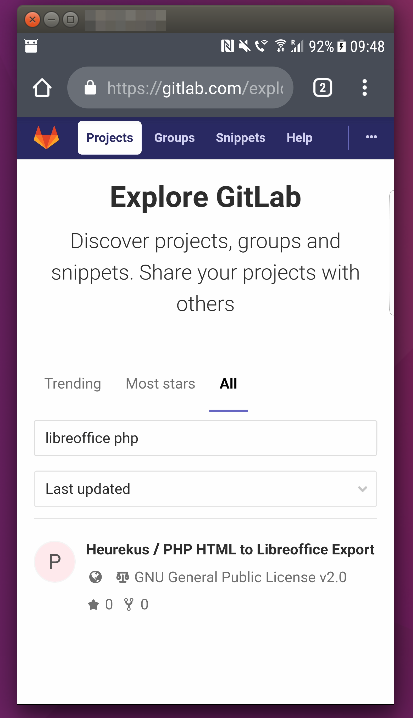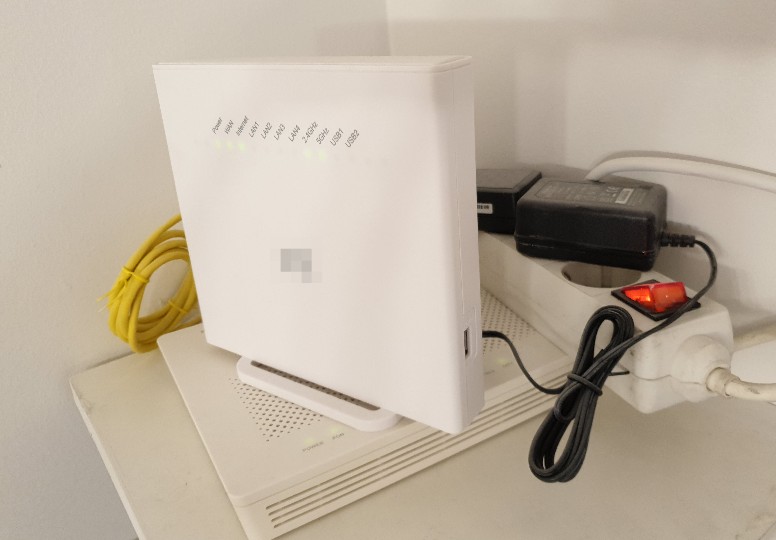Time flies and I can hardly believe that I’ve had a fiber connection at my Paris flat for 4 years now and that fiber is still almost nowhere to be seen in Germany. O.k. I do have vectored VDSL and 100 Mbit/s down, 40 Mbit/s up is not so bad. But fiber is playing in an entirely different league. When I got my fiber Line in Paris four years ago, I measured 264 Mbit/s in the downlink direction and 48 Mbit/s in the uplink direction. So how are things today, i.e. 4 years down the road?
Book Review: Atypical Geek Girl
Today I thought I write down some thoughts on a book I noticed when I was at the Living Computer Museum and Labs (LCM+L) in Seattle last year: ‘Atypical Geek Girl’ by Katherine Hitchcock. In her memoirs, Katherine describe her 30 year tech career in IBM that began in the 1960s.
Further Backup Strategy Improvements
One of my hobbies is to make sure to have a good backup strategy and to loose as little data as possible once the inevitable happens. Rsync and Luckybackup, a graphical frontend for rsync have been my friends for years and helped me to maintain identical copies of critical installations over the years. One weak spot in my backup strategy so far was that some devices are often out of the house and thus away from backup drives and emergency spare duplicates for weeks on end, so any loss of them would mean a significant loss of data. But I’ve got a solution for that, too, now!
Retiring my 2012 Nokia 808
It just appeared to me today that I could finally retire my Nokia 808 that I had since 2012 as I finally have a mobile phone now that can match its camera’s quality!
Android Open Source Tool For A Remote Screen over USB
 One of the main issues I have with tablets and smartphones is that I did not come across a good tool for remote support, i.e. seeing the screen on my PC and being able to use the mouse and the keyboard to interact with the system. Yes, I know there some apps such as Teamviewer but they are not open source so my trust in them is very limited. Finally, however, I’ve been made aware of an interesting tool that can partly do the job: Scrcpy by Genymobile!
One of the main issues I have with tablets and smartphones is that I did not come across a good tool for remote support, i.e. seeing the screen on my PC and being able to use the mouse and the keyboard to interact with the system. Yes, I know there some apps such as Teamviewer but they are not open source so my trust in them is very limited. Finally, however, I’ve been made aware of an interesting tool that can partly do the job: Scrcpy by Genymobile!
Continue reading Android Open Source Tool For A Remote Screen over USB
Malaga on Fiber
 When I go on business trips or vacation, I usually do that in the mindset that Internet connectivity will not be as good as at home and that I will be restricted in some way. While in Europe, LTE coverage is usually good wherever I go and speeds are usually sufficient in the double digit Mbit/s range in both the uplink and downlink direction. That’s good enough for most things but outside of Germany, the amount of data I can use per month is still limited. Outside of Europe, things are worse but they are getting better. On the fixed line side I’ve long given up expecting decent Internet connectivity at hotels, with speeds in the double digit Mbit/s range in both the uplink and downlink direction being a huge exception rather than the norm. When I was recently in Malaga in southern Spain for a week, I went there with the same expectation but was very positively surprised about the triple digit up- and downlink speeds in the rental apartment.
When I go on business trips or vacation, I usually do that in the mindset that Internet connectivity will not be as good as at home and that I will be restricted in some way. While in Europe, LTE coverage is usually good wherever I go and speeds are usually sufficient in the double digit Mbit/s range in both the uplink and downlink direction. That’s good enough for most things but outside of Germany, the amount of data I can use per month is still limited. Outside of Europe, things are worse but they are getting better. On the fixed line side I’ve long given up expecting decent Internet connectivity at hotels, with speeds in the double digit Mbit/s range in both the uplink and downlink direction being a huge exception rather than the norm. When I was recently in Malaga in southern Spain for a week, I went there with the same expectation but was very positively surprised about the triple digit up- and downlink speeds in the rental apartment.
2 TB SSD Update At 320 Euros
I had to wait a long time for this but finally, finally, SSD prices have dropped again! Back in August 2017 I wrote a post that SSD prices had not fallen at all over the previous two years and that I was at the point of needing an upgrade from a 1 TB SSD to a 2 TB SSD. However, not at 600 euros a piece. Fortunately, Moore’s law has resumed and in 2018, SSD prices finally started to drop again. Now at the beginning of 2019, I could finally get a 2 TB Samsung 860 EVO SSD (2.5″ SATA) at my price limit of around 300 Euros. It cost 319 Euros to be exact. Prices of other manufacturers such as SanDisk and Crucial were down to around 250 – 270 euros. No more economizing and moving seldom used data to offline storage anymore for some time to come!
Picture Perfect Rescue After Human Error
 A few days ago I was called for help from a family member because instead of deleting one picture on the camera, a friend accidentally deleted ALL pictures on the SD card. Obviously there weren’t just a few images on the SD card, no, it was close to a thousand. Probably happening a million times a day on the planet but I have to admit that was a bit of a challenge to fix remotely.
A few days ago I was called for help from a family member because instead of deleting one picture on the camera, a friend accidentally deleted ALL pictures on the SD card. Obviously there weren’t just a few images on the SD card, no, it was close to a thousand. Probably happening a million times a day on the planet but I have to admit that was a bit of a challenge to fix remotely.
Another Book Review – We Are Legion, We Are Bob
And jumping right from the last science fiction book review to the next one. I could have gone for the sequel of ‘The Sleeping Giants’ but decided to do that later and go for something else first. My choice fell on “We Are Legion, We Are Bob” by Dennis E. Taylor.
Continue reading Another Book Review – We Are Legion, We Are Bob
5G Beyond Option 3 – Pt. 3
In the previous two parts on the topic I’ve been looking at why there is a need to evolve the initial 5G network architecture in which 5G base stations are merely a side-kick to the LTE access and LTE core to a pure 5G access and a 5G core network. There are several ways how to evolve from the initial state, and the options that seem most likely to me are ‘Option 4’ and ‘Option 7’. Both options have in common that they use a 5G core network and that 4G and 5G radio networks are combined to increase the throughput for high speed Internet users. Over time, spectrum is then piece by piece transitioned from 4G to 5G as the number of 5G devices that can talk to a 5G core network increases. While these options look nice they have a weak spot for network operators with little low band spectrum.